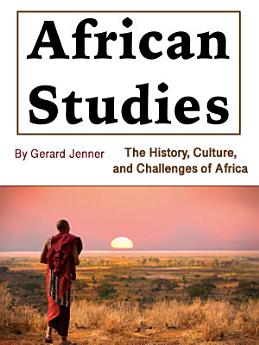African Studies: The History, Culture, and Challenges of Africa
About this ebook
The concept of African Renaissance, popularized by former South African President Thabo Mbeki in the late 1990s, encapsulated the growing confidence of African leaders and intellectuals who rejected the persistent narrative of Africa as a continent defined primarily by poverty, conflict, and dependency. This intellectual movement drew inspiration from historical examples of African achievement while articulating visions for political, economic, and cultural renewal that would establish Africa as an equal partner in global affairs rather than a perpetual recipient of aid and intervention.
Professor Wole Ogundipe at the University of Cape Town had spent decades studying the philosophical foundations of African identity, tracing the evolution of concepts like ubuntu, the Southern African philosophy emphasizing interconnectedness and shared humanity, through contemporary applications in conflict resolution, community development, and international relations. His research demonstrated how traditional African value systems provided frameworks for addressing modern challenges while offering alternatives to Western models of individualism and competition that had often proven inadequate for African contexts.







